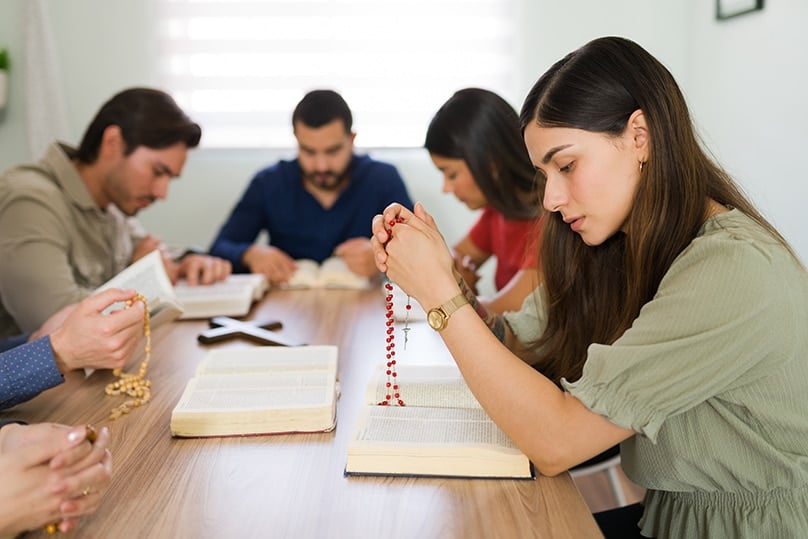
Last week we speculated about the impact of Catholic school education on Catholics in Australia. Does it make you a better Catholic in terms of what you believe?
The results from the Catholics in Australia survey seemed to show that all-Catholic schooling made a person a less committed Catholic believer, compared to those who had little or no Catholic schooling.
Before we go crazy: everyone in the study has left the school system now, some of them for many years. There’s also a very “real”—statistically significant—difference between those aged over 40, and those under 40, as the under-40s are much more conservative.
So is our impression of Catholic schooling’s impact in Australia being skewed by older Boomer graduates?
There’s only one way to find out. I split everyone up into under-40 and over-40 groups. The over-40s finished school any time between 1957 and 1998, while the under-40s finished school any time between 1999 and 2021.
Let’s look at the under-40s first, because we already know they tend to be more conservative than their elders.
Within this group, there were no “real” (significant) differences in their beliefs about things like heaven, hell, the saints, the Real Presence, and purgatory. Those who had all-Catholic schooling and those with little or none believed pretty much in the same way.
When it came to sexual morality, there were some “real” differences in belief about the sinfulness of homosexual behaviour, sex outside marriage, contraceptive use, using non-renewable forms of energy, and remarrying without an annulment.
The under-40s with little or no Catholic schooling were more likely to say that all of these were sinful, except for the non-renewables. Those with all-Catholic education said the opposite: free sex = fine, using non-renewables = not fine.
On whether the church could change its teachings, the “real” differences were that the under-40s with all-Catholic schooling were much more in favour of ordaining women and allowing divorced and remarried couples and those living together to receive Holy Communion. But if you didn’t go to Catholic schools, you tended to give these ideas a big fat no.
So that’s the under-40s. What about their elders?
The over 40s were also pretty consistent in terms of belief about things like heaven and hell, no matter where they went to school. The only “real” difference was that the all-Catholic school graduates were now less likely to believe in the existence of purgatory than those who didn’t go to Catholic schools.
What about sexual morality? Again, those who had all-Catholic schooling were much less likely to say that they believed homosexual behaviour and sex outside marriage were sinful, compared to people with no Catholic schooling.
But there were two other “real” differences. Those with all-Catholic schooling were less likely to think it was sinful to live in a house that’s bigger than your needs, and to spend money on luxuries while not giving to the poor.
The only “real” differences in beliefs about the church changing its teaching were with ordaining women and recognising same sex marriage. Other than that, the all-Catholic education and the little or no Catholic education groups believed in much the same ways.
What does this all mean? If we treat the under-40s and over-40s as two separate groups, they mostly think like each other and believe like each other, regardless of where they went to school.
There’s just a few areas where all-Catholic schooling seems to have made a difference, and these are quite age-specific. The younger, friskier Catholic school graduates are keen on free-range sex, environmentalism, and no restrictions on Holy Communion.
The older, less frisky Catholic school graduates are keen on retaining their large empty-nest family home and spending the kids’ inheritance. But those who had little or no Catholic schooling in both age groups tend to believe the opposite.
In both age groups, all-Catholic schooling seems to produce “real” differences in three areas: believing that homosexual behaviour and sex outside marriage aren’t sinful and believing that the church can change its teaching to ordain women. If you believe and support the church’s position on these, then you probably didn’t go to a Catholic school.
What this might also show is that Catholic schools in Australia have lifted their game since 1999 in terms of teaching doctrine about things like heaven and hell. But it looks like they still have work to do in terms of sexual morality and church discipline.
It’s interesting, isn’t it? And as I wrote last week, a further study on homeschooling would be a good comparison group!
